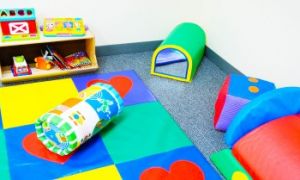

Neurodivergence refers to natural variations in how brains process information, emotions, and social interactions. In early childhood, this may include children with autism, ADHD, dyslexia, dyspraxia, or other neurological differences.
In early childhood education, behaviour is never just “bad” it’s a message. Whether it’s a child struggling with transitions, sensory overload, or unmet emotional needs, the role of educators is to respond with curiosity, compassion, and consistency. But educators can’t do it alone. Behavioural support must be systemic, accessible, and grounded in both child development and educator well-being. Across Australia, a range of behavioural support pathways exist to help services respond to challenging behaviours while upholding inclusion, safety, and dignity for all.
Early childhood educators are entrusted with the profound responsibility of nurturing and protecting young children. Yet, many educators face daily challenges when children exhibit violent behaviours like biting, hitting, scratching, or verbal aggression. While child protection is paramount, the rights and well-being of educators must also be safeguarded.
Attention Deficit Hyperactivity Disorder (ADHD) is a neurodevelopmental condition that affects a child’s ability to regulate attention, impulses, and activity levels. In early childhood settings, ADHD may present as difficulty sitting still, following instructions, transitioning between tasks, or managing emotions. With the following key strategies, educators can create environments that support learning, emotional regulation, and social development.
This foundation course is a 2-part series, provided by Early Childhood Australia, that develops an understanding of the meaning of children’s behavior, which will in turn support educators in developing strategies and teaching techniques unique for each individual child, with the overall aim of empowering children to take control.
Tantrums can be intense, unpredictable, and emotionally draining for both children and adults. But beneath the noise and tears lies something deeper: a child overwhelmed by emotion, struggling to communicate what they feel. In early childhood education and care, how we respond to these moments shapes not just behavior but also emotional literacy, trust, and long-term well-being.
In the rhythm of early childhood, emotional storms are natural. Toddlers and preschoolers are still learning to navigate big feelings, and their expressions, whether tears, tantrums, or withdrawal, are often calls for connection, not correction. As educators, our role is to be the calm in their chaos, offering warmth, understanding, and safe spaces to feel. The following article explores emotionally intelligent strategies that educators can implement to support children during moments of overwhelm, with examples.
When a child becomes violent in an early childhood setting, de-escalation isn’t just about calming the moment—it’s about protecting safety, preserving dignity, and responding to distress with relational intelligence. Here’s a trauma-informed, regulation-aligned guide to de-escalation strategies for violent behaviour in young children.
Violence from a child in an early childhood setting can be confronting, destabilising, and emotionally exhausting. For educators committed to nurturing safe, responsive environments, such incidents often trigger a complex mix of concern, confusion, and self-doubt. This article explores how educators can protect themselves, support the child, and uphold their duty of care.
Teaching young children how to use their hands for kindness rather than harm is foundational to building a caring classroom culture. At ages four and five, children are still developing self-regulation and may act out physically when emotions feel overwhelming. As educators, we can guide them toward prosocial alternatives, equip them with emotional vocabulary, and partner with families to reinforce healthy touch at home.
 Open ended questions cannot be responded to with one word answers such as yes or no. These types of questions enables a child to provide… Read More
Open ended questions cannot be responded to with one word answers such as yes or no. These types of questions enables a child to provide… Read More
 During your child’s preschool years, an important milestone begins to emerge. This is the development of pre-writing skills. Pre-writing skills are used to encourage, develop… Read More
During your child’s preschool years, an important milestone begins to emerge. This is the development of pre-writing skills. Pre-writing skills are used to encourage, develop… Read More
 Open ended materials enables children to play freely. They are objects that have no rules to follow, use or function. Raw materials that can be… Read More
Open ended materials enables children to play freely. They are objects that have no rules to follow, use or function. Raw materials that can be… Read More
 An Acknowledgment of the Country is a way of showing respect for the Traditional Owners and can be given by both non-Indigenous people and Aboriginal… Read More
An Acknowledgment of the Country is a way of showing respect for the Traditional Owners and can be given by both non-Indigenous people and Aboriginal… Read More
 Language plays an important role in a child’s development. It enables a child to communicate effectively with their family, learn at school, socialize with friends,… Read More
Language plays an important role in a child’s development. It enables a child to communicate effectively with their family, learn at school, socialize with friends,… Read More
 Like adults, children have to deal with their own stress in life. Moving house, starting a new school, preparing for a new sibling - these are… Read More
Like adults, children have to deal with their own stress in life. Moving house, starting a new school, preparing for a new sibling - these are… Read More
 Playdough is such a versatile material. It provides numerous benefits to children as they manipulate it, it is safe and soothing and provides children with… Read More
Playdough is such a versatile material. It provides numerous benefits to children as they manipulate it, it is safe and soothing and provides children with… Read More
 Teaching children about sustainability enables them to appreciate and respect the natural environment. Early childhood services can provide meaningful hand on learning experiences in order… Read More
Teaching children about sustainability enables them to appreciate and respect the natural environment. Early childhood services can provide meaningful hand on learning experiences in order… Read More
 Recycling is an important concept that teaches children to care for the environment. It encourages children to be responsible and show a growing appreciating for… Read More
Recycling is an important concept that teaches children to care for the environment. It encourages children to be responsible and show a growing appreciating for… Read More
 When children apply paint to paper, glue things together, or pound a lump of clay, they experiment with colour, shape design and texture.
Read More
When children apply paint to paper, glue things together, or pound a lump of clay, they experiment with colour, shape design and texture.
Read More

Quality Area 3 of the National Quality Standard focuses on the physical environment.
See more...
Writing a group observation in early childhood education is both an art and a strategic...
See more...
Emotional Intelligence is now widely accepted as a fundamental life skill which can be nurtured...
See more...© 2009-2025 Aussie Childcare Network Pty Ltd. All Rights Reserved.

